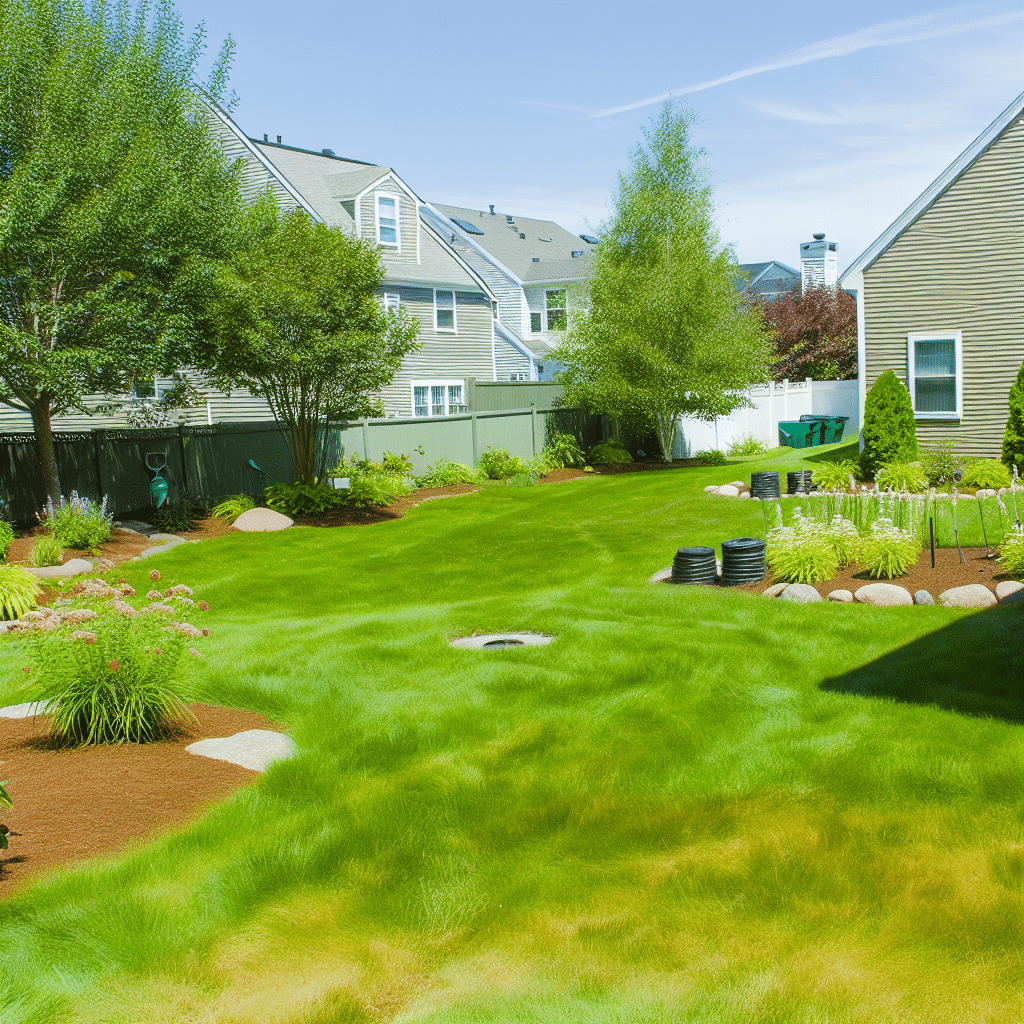The Hidden Challenge in Your Backyard
It begins as a minor nuisance – a buzzing in the garden, a few bees hovering over the lawn. But as the days grow longer and the sun beats down on Cranston, the presence of ground bees can escalate into a full-blown infestation. “What kills ground bees instantly?” becomes a pressing question for homeowners seeking to reclaim their outdoor spaces. This is not just about a quick fix; it’s about finding safe, effective solutions that protect your family, pets, and the local ecosystem.
Understanding the Ground Bee Dilemma
Ground bees, while integral to our environment as pollinators, can create unwanted tension when their burrows crop up in our yards. The sight of these winged visitors can cause concern, particularly for those with small children or pets enjoying the summer outdoors. However, in the quest for immediate results, one must balance urgency with conscientious decision-making. With attacks on bee populations making headlines, the methods we choose today can have a lasting impact beyond our own gardens. It’s a delicate balance of personal safety and environmental stewardship.
A Personal Approach to Bee Management
Perhaps you’ve noticed the tell-tale signs: small mounds of earth dotting your once-pristine lawn, the faint buzz morning and evening when bees are most active. It’s personal now—they’re not just in some remote field; they’re here, in your space. Here’s where practical advice tinged with empathy can bridge the gap between panicked reactions and informed choices. Knowledgeable, safe practices are at your fingertips, promising peace without collateral damage to the buzzing caretakers of our gardens. The answer lies in acting swiftly but also wisely, ensuring our actions today don’t ripple negatively into the tomorrows of our Cranston ecosystem.
Expert Solutions for Immediate Relief
Dealing with ground bees requires a strategy – a means to end the threat without introducing new problems. As homeowners in Cranston seek a balance, they often stumble upon a variety of solutions, yet not all are created equal. The key is to employ methods that are both instantly effective and environmentally sound. This is where knowledge becomes power, empowering you to take action that is both decisive and responsible. Picking the right approach is crucial, and it involves weighing the pros and cons of each potential solution.
A Closer Look at Safe Eradication
Soap and water, a deceptively simple mixture, stands as a testament to ingenuity in addressing our bee dilemma. When applied correctly, directly into their burrows, this method proves not only efficacious but also minimizes harm to other beneficial insects and the surrounding flora. Yet, before taking this step, it’s vital to verify that you’re dealing with ground bees, and not their more dangerous cousins such as wasps or hornets. Determining the right pest is half the battle, and from there, the path to a bee-free yard becomes much clearer. It’s about being informed, and acting on that information with precision and care.
Prevention as the Best Protection
As is often said, the best cure is prevention. By creating an environment that’s less attractive to bees, such as maintaining a well-hydrated lawn and dense ground cover, you can discourage ground bees from setting up shop to begin with. It’s a proactive measure that’s as simple as it is effective, and it’s something any homeowner can do with a little effort and dedication. This way, not only do you solve the current problem, you also future-proof your home against these buzzing invaders. With each season, as your lush, bee-deterring lawn grows, so too does your peace of mind.
Lasting Impact with Considered Action
Building a plan to manage ground bees is more than a seasonal chore; it’s a commitment to your property’s health and the broader environment. A careful approach, grounded in understanding bee behavior and their ecological benefits, ensures that our eradication efforts reflect our values. The emphasis on swift and decisive action pairs with a need for long-term sustainability—guiding principles that underscore each choice we make. We navigate these situations with a mix of strong resolve and deep respect for our six-legged neighbors. In doing so, we protect our homes and habitat alike.
When to Seek Professional Assistance
There are times when the DIY approach reaches its limits, and the expertise of a professional is paramount. This is particularly true when allergies are a concern, or when bee activity points to a larger problem at hand. Homeowners should never hesitate to reach out for help when the situation escalates beyond their comfort zone. Experts from reputable services can offer the right assistance with precision and care, ensuring the safety of all involved. Trusting professionals is an investment in tranquility, safeguarding both immediate well-being and ongoing domestic peace.
Embracing a Bee-wise Future
As we round out our discussion on the pressing question of “what kills ground bees instantly,” our focus shifts to the horizon—how do we foster bee-wise habitats while protecting our own spaces? It’s about vigilance in prevention, employing methods that dissuade bees without harmful repercussions, and staying knowledgeable about safe, effective removal practices. Our efforts thread the needle between immediate needs and enduring impact, marking a path forward that honors life in all its forms. Today’s actions echo into tomorrow’s gardens, Cranston’s backyards transforming into models of coexistence. Our vision for a harmonious outdoor living space is clear, and it starts with each responsible step we take today.
Insights From The Experts
Tip 1:
Identify the types of bees in your yard before taking action, as ground bees are generally non-aggressive and important pollinators. If removal is necessary, plan to do so during dusk or dawn when bees are less active.
Tip 2:
A mixture of equal parts vinegar and water can be an effective natural repellent for bees. Apply it around the nesting areas, but avoid overuse as it may harm plant life and beneficial insects.
Tip 3:
Consider installing a decoy nest to deter ground bees, as they tend to be territorial and are less likely to settle near existing nests. This can keep them away from common areas without the need for extermination.
Tip 4:
To prevent future ground bee infestations, maintain a well-watered lawn, as ground bees prefer to nest in dry soil. Additionally, planting robust ground cover can also deter them from nesting.
Tip 5:
If you’re allergic to bee stings, avoid dealing with bee removal yourself and contact professional pest control services. They can safely manage the removal process and provide advice on preventing future issues.
Expert Answers to Your Ground Bee Questions
How Can I Safely Get Rid of Ground Bees Without Harming My Lawn or Garden?
Utilize a gentle soap and water solution directly into the nests at dusk or dawn, which effectively eliminates bees without damaging your greenery.
Are There Eco-Friendly Pesticides for Targeting Ground Bees?
Yes, natural ingredients like peppermint oil in water or diatomaceous earth can target ground bees without harsh chemicals.
What Steps Should I Take if I Find a Ground Bee Nest Near My Home?
Keep the area clear of pets and family members, and consider natural deterrents or professional removal if the nest is large or if bees are aggressive.
How Do I Prevent Ground Bees from Nesting in My Yard?
Maintain a well-watered lawn and dense ground covers, which create less than ideal conditions for ground bees looking to nest.
What Should I Do if I Am Allergic to Bee Stings and I Find Ground Bees on My Property?
Prioritize safety by staying clear of the area and contacting a pest control professional who can safely remove the bees with minimal risk.




